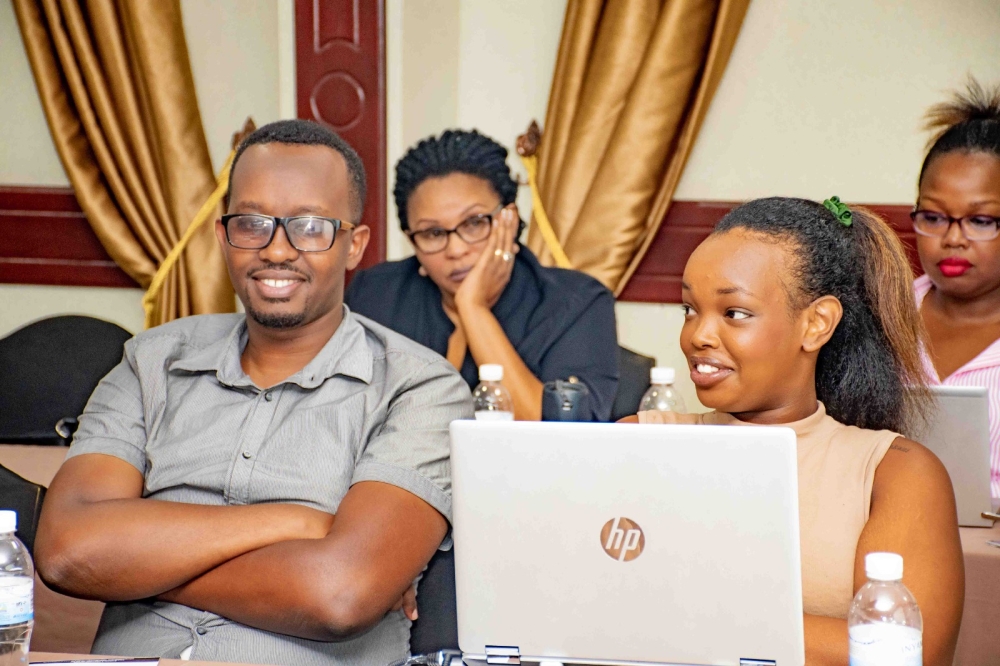

The Health Development Initiative (HDI) Rwanda held a three-day training from July 23-25, focused on strengthening the capacity of journalists to promote adolescent Sexual and Reproductive Health and Rights (SRHR) and patient and health users’ rights.
The training sessions brought together various journalists, particularly health reporters from different media outlets, and other media platforms as well as experts specialising in SRHR.
The discussions focused on various strategies for reporters to advocate for SRHR issues. Journalists also learned how to write news stories that both inform and educate the public on SRHR topics and how to report fairly on sensitive issues.
One of the key sessions of the training was understanding intersectionality, which explains how individuals might experience multiple forms of discrimination, such as sexism, gender inequality, and sexual orientation among others.
The media professionals were taught how to incorporate these perspectives into their storytelling.
The sessions also focused on giving insights into patient healthcare users&039; rights.
Journalists were educated on the fundamental rights of patients, including the right to informed consent, confidentiality, and access to quality healthcare services.
This segment aimed to deepen their knowledge of the legal and ethical frameworks surrounding patient rights.
They also looked at the role of media in advocating for patient rights.
Participants were trained on how to effectively report on violations of patient rights and highlight positive stories of healthcare facilities upholding these rights.
They also explored techniques for investigative journalism in healthcare settings.
Yusuf Ubonabagenda from TV10 mentioned that he was aware of patient rights but was unsure where patients could seek assistance in upholding those rights.
"In these training sessions I learned a lot about patient rights, and this will guide me in how I approach my stories and help patients understand their rights since I now have the necessary information," he said.
Germaine Umukazana from Kigali Today noted that while she was aware of patient rights as human rights, the training sessions provided her with deeper insights.
"These training sessions have been incredibly enlightening and have guided me to conduct more research, enhancing my work as a journalist," she added.
Additionally, Issa Kwigira from Flash TV said that such training programmes help journalists understand topics around sexual and reproductive health better.
"The current understanding of reproductive health among journalists is still average. When you read articles written by some journalists, it's evident that there is a lack of sufficient knowledge on the subject among our colleagues and their audiences."
The HDI-Rwanda Director of the Center for Health and Rights, Christopher Sengoga, said that the media is a trusted source of information, and such trainings aim to tap into this to promote advocacy around issues related to adolescent sexual and reproductive health.
"We organised this training to enhance media professionals&039; understanding of the challenges adolescents face in accessing information and services related to SRHR. Our goal is to ensure accurate and impactful reporting that amplifies the voices of young people and drives positive change in our communities," he said.


